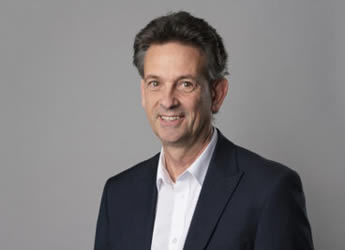
Professor Martin Freer
CEO
The Faraday Institution
Professor Martin Freer joined the Faraday Institution as CEO in September 2024.
Professor Freer is a nuclear physicist. Between 2015 and 2024 he served as the Director of the Birmingham Energy Institute (BEI) at the University of Birmingham, a pan-discipline research centre with research activities from hydrogen, energy storage and battery technologies, through to nuclear energy, which is focused on creating technology and guiding policy that will shape future energy solutions. He also served as Director of the Energy Research Accelerator (which comprises eight internationally renowned Midlands universities that are part of the Midlands Innovation partnership, together with the British Geological Survey) delivering a £200m programme to accelerate university research into regional, national and international impact linked to 1,400 researchers.
Previously, Martin was Director of the Birmingham Centre for Nuclear Education and Research, which he established in 2010. He oversaw the development of the BEI and helped establish Energy Capital (a regional energy partnership for the West Midlands that brings the public and private sectors together to deliver place-based energy solutions). He also co-led the establishment of the joint University of Birmingham–Fraunhofer Germany research platform, the development of the Birmingham Energy Innovation Hub, and the co-development of Tyseley Energy Park in Birmingham.
In 2015 Professor Freer co-led the BEI Commission “Doing Cold Smarter” chaired by Lord Teverson. From 2012 he led or co led a number of Birmingham Policy Commission reports including “Future of Nuclear Energy in the UK” and “Pathways for Local Heat Delivery” and he has championed the establishment of a National Centre for the Decarbonisation of Heat. Professor Freer also co-led the Policy Commission with Sir David King, which saw the creation of Energy Innovation Zone in the West Midlands.
His main research area is the study of the structure of light nuclei, using nuclear reactions. He received the Friedrich Wilhelm Bessel Prize, Humboldt Foundation, in 2004 and the Rutherford Medal from the Institute of Physics in 2010.
